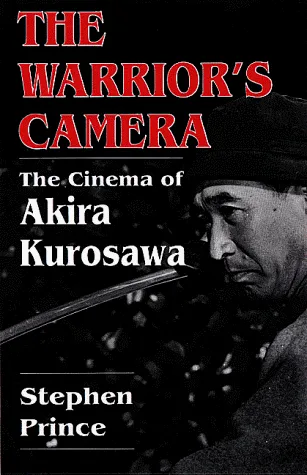The Warriors' Camera: The Cinema of Akira Kurosawa
4.5
Reviews from our users

You Can Ask your questions from this book's AI after Login
Each download or ask from book AI costs 2 points. To earn more free points, please visit the Points Guide Page and complete some valuable actions.Introduction to "The Warriors' Camera: The Cinema of Akira Kurosawa"
"The Warriors' Camera: The Cinema of Akira Kurosawa" by Stephen Prince is a profound exploration of the iconic Japanese filmmaker Akira Kurosawa's cinematic artistry. With meticulous research and insightful analysis, Prince crafts a comprehensive narrative about Kurosawa's contributions to world cinema. This book is an essential read for film enthusiasts, scholars, and anyone who wishes to delve deeper into the film medium.
Detailed Summary of the Book
Stephen Prince offers an in-depth examination of Akira Kurosawa's filmmaking from both a technical and philosophical perspective. The book discusses Kurosawa's unique storytelling techniques, his innovative use of the camera, and his ability to blend Western influences with traditional Japanese cultural themes. Prince dissects Kurosawa's most influential works, such as "Rashomon," "Seven Samurai," and "Ikiru," offering readers a closer look at the narrative structures and visual styles that define these films.
The book is organized thematically, presenting Kurosawa's work in the context of his personal and professional life. Prince also provides detailed analyses of Kurosawa's collaborations with prominent actors and his role in revolutionizing the samurai film genre. Throughout, Prince emphasizes Kurosawa's humanistic themes and his exploration of ethical questions, showcasing how the filmmaker’s stories often reflect moral challenges faced by individuals and societies.
Moreover, "The Warriors' Camera" places Kurosawa’s work within the broader history of cinema, demonstrating his influence on both Japanese and international filmmaking. Prince meticulously argues that Kurosawa’s films are not just entertainment—they are profound statements on the human condition, rendered through the director’s signature lens.
Key Takeaways
- Kurosawa's innovative use of the camera and editing techniques redefined visual storytelling in cinema.
- The director's ability to synthesize Western and Eastern influences created a unique cinematic language.
- Kurosawa’s films often focus on ethical dilemmas, making them timeless explorations of the human psyche.
- The influence of Kurosawa’s work extends beyond Japanese cinema, impacting international directors and filmmaking styles.
Famous Quotes from the Book
"Kurosawa's camera doesn’t just record; it interprets and explains."
"In each frame of a Kurosawa film, the narrative is advanced not only by dialogue but by the movement, composition, and lighting."
Why This Book Matters
"The Warriors' Camera" is more than a study of Akira Kurosawa; it is a portal to understanding the evolution of cinematic language. Prince’s analysis helps readers appreciate the technical aspects of filmmaking, such as editing, framing, and direction, which Kurosawa mastered to create powerful visual and narrative impacts. The book’s depth and clarity make it a crucial resource for scholars and fans alike, ensuring that Kurosawa’s genius and contributions to cinema are studied and cherished by future generations.
Free Direct Download
You Can Download this book after Login
Accessing books through legal platforms and public libraries not only supports the rights of authors and publishers but also contributes to the sustainability of reading culture. Before downloading, please take a moment to consider these options.
Find this book on other platforms:
WorldCat helps you find books in libraries worldwide.
See ratings, reviews, and discussions on Goodreads.
Find and buy rare or used books on AbeBooks.
1239
بازدید4.5
امتیاز50
نظر98%
رضایتReviews:
4.5
Based on 0 users review
"کیفیت چاپ عالی بود، خیلی راضیام"


